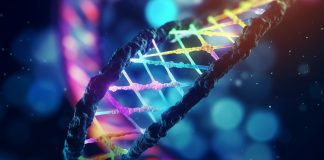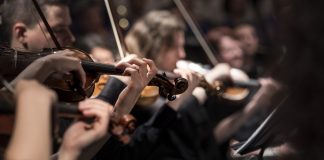Pets: Our help for a better life
I've always liked pets, but from a distance. Raised by a mother convinced that animals cannot possibly live under the same roof as people, I adopted a similar opinion, which I kept for many years, even if a great number of people tried to prove me wrong.
Circumstantial faith
As a believer—for present purposes, defined simply as one who believes—I have often wondered what and how I would believe differently had I been born into a family and culture with different beliefs. Obviously, I believe what I believe because I believe it to include truth, but would I have believed in this same truth if I had not been raised and taught...
Saved by technology
The prospect of a future in which technology plays the supreme role in our lives is increasingly confirmed by the applications of scientific discoveries. In this context, it is even speculated that the nature of humanity will be profoundly changed, reaching a higher qualitative stage, so that, in the end, even the obstacle of death will be overcome.
The last man in the water
Self-sacrifice—the ability of some people to put the lives of others above their own—is not at all easy to understand.
The mystery of the incarnation
The birth of Jesus Christ is one of the most significant events in human history. Celebrated at Christmas, by some with emotion, by others with indifference, most of the time the holiday loses sight of the main Character. Religious meanings remain in the shadows, while commercial dimensions are pursued at all costs.
Facing the two doors: which one will you choose?
No other court in the world can judge a person as effectively as their own conscience. Before and immediately after a wrong has been committed, the "merciless" trial begins.
The price is right: “For who makes you different from anyone else?” (part 2)
Can the thinking of a single philosopher be so influential as to change the fundamental values of a society and lead to tremors of transcontinental proportions, like the economic crisis that began in 2007? Could Ayn Rand's philosophy be the almost-imperceptible reason for transforming the United States, as Levine puts it, into a "selfish nation"?
Misunderstood attitudes of parents | How I came to understand myself
When I became a parent, someone told me that I would learn to be a child. However, I was determined to be more of an adult than ever and not repeat attitudes that I considered wrong, including those of my parents.
Jumping High: The one who inspired me at the Olympics
What does it take to be the best? Most people will tell you it’s a combination of hard work and talent. Ask Australian high jumper Nicola McDermott, however, and you’ll quickly realise it’s a mental thing. It’s absolute belief that you can achieve whatever you set your mind to.
DNA: the language of chance, or of the Creator?
Scientific progress in understanding the DNA molecule and in deciphering the molecular mechanisms by which cells function can only be described as revolutionary. In the first of our "Genetics and Evolution" series of articles we examine the implications of these discoveries for evolutionary and creationist perspectives on the origin of life.
When sounds proclaim the glory of God
The year 1685 gave the world two of its greatest composers: Johann Sebastian Bach and George Friedrich Handel. The presence of the great biblical subjects in their masterpieces not only filled the hearts of believers with joy, but determined a new direction in the evolution of the musical language, which continues to have an impact to this day.
The straw man. An argument the size of a flash in the pan.
The moment we distort a person’s intention, statement, gesture or action for our own personal gain we are using, consciously or unconsciously, the straw man argument − a frequent fallacy.
It is unrealistic to start a marriage thinking it will last forever. True or false?
The promise to live with our loved one “until death do us part" has gradually lost its meaning. Today, it is considered unrealistic to get married with the idea that the relationship will last forever.
Paupers and swindlers: Why banknotes don’t wipe away tears
Entitled "From pauper to pastor," Jeremiah Steepek's story had all it needed to go viral. People were moved, liking and sharing it on social media with an enthusiasm that, ironically, is never seen in relation to real beggars. Is there a way out of this seemingly unfortunate situation?
Overwhelmed by simplicity
Social upheaval, an identity crisis, the sexual revolution, experimentation with drugs, and Eastern philosophies distanced entire generations in Western Europe from conservative values and faith. However, in the same 1960s and 1970s environment, Marijke and Bernard Beranger found something better and more lasting.


























